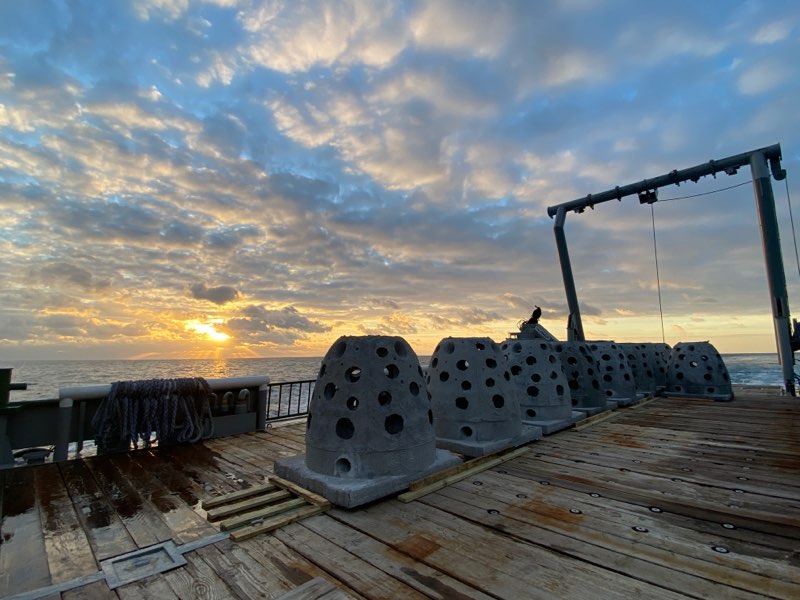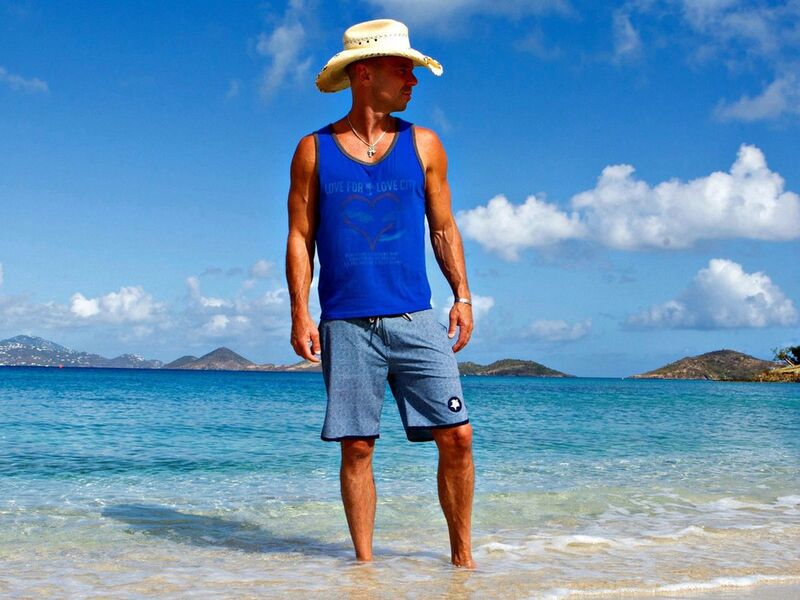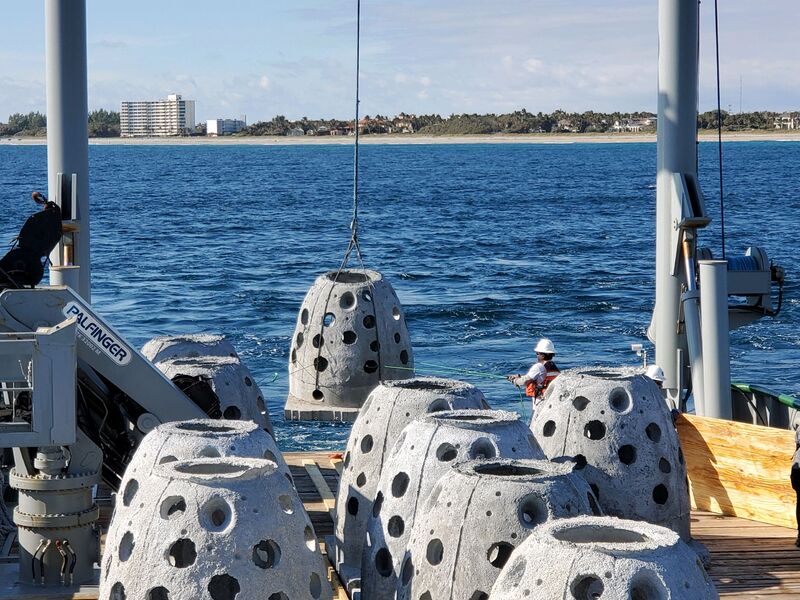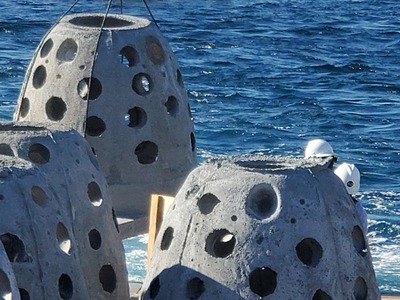
Kenny Chesney didn’t get to the top of the country music world by thinking small. But that’s his mindset with No Shoes Reefs, the grassroots conservation group he founded in 2015 to protect and rehabilitate troubled coral reefs and marine ecosystems.
“I think it’s the small projects that raise awareness on local levels and help people understand that the ocean is a living thing,” Chesney said last week in an email.
 On Saturday, No Shoes Reefs launched the development of a 32-acre underwater park off Delray Beach. The project is a partnership with the Coastal Conservation Association Florida, Palm Beach County Environmental Resources Management, Sandoway Discovery Center, Global SubDive and the Reef Ball Foundation.
On Saturday, No Shoes Reefs launched the development of a 32-acre underwater park off Delray Beach. The project is a partnership with the Coastal Conservation Association Florida, Palm Beach County Environmental Resources Management, Sandoway Discovery Center, Global SubDive and the Reef Ball Foundation.
Chesney formed No Shoes Reefs in Jacksonville in 2015, spearheading a project that created two man-made reefs in the St. Johns River.
“No Shoes Reefs is an extension of how I have tried to live for many, many years,” Chesney said. “Love the water, give back to the water.”
The Delray Beach venture is No Shoes Reef’s second in Florida. Global SubDive’s Go America vessel deployed 13 goliath reef balls, 7-by-6-feet and 10,000 pounds each, in the Delray Dredge Hole, a pre-permitted artificial reef site roughly a half-mile offshore and 0.35-mile long by 0.13-mile wide.
“The development will provide divers the opportunity to explore the 13 reef balls now, and dozens of future underwater acreages, once the Delray Dredge Hole is complete,” No Shoes Reefs spokesman Brett Palmer said. “As new deployments happen, there will be paths for underwater enthusiasts to discover new marine habitats, unique seagrasses, and a variety of fish species.”

The eco-compatible reef balls are made of marine-grade PH-adjusted concrete and “and strengthening fibers to make them durable,” according to Larry Beggs, a Sarasota-based entrepreneur who founded Reef Innovations in 1995. “The inside is hollow and the holes are vortexed to allow for noises that attract fish. The holes also improve water flow … We’ve even added coral adapter plugs to allow for coral transplants.”
The balls act as “seeds” for reefs and can withstand extreme storms. Beggs’ organization has partnered with conservation groups and non-government organizations in roughly 70 countries “with nearly a half a million reef balls deployed worldwide.”
Artificial reefs help spark the development of thriving habitats for multiple species of fish, invertebrates, and other marine life, including smaller organisms that are vital food sources for other marine species.
 The goal, according to No Shoes Reefs, is to create an evolving ecosystem that enhances fisheries, improves water quality, and provides new opportunities for local and visiting anglers.
The goal, according to No Shoes Reefs, is to create an evolving ecosystem that enhances fisheries, improves water quality, and provides new opportunities for local and visiting anglers.
“Many people don't realize both how fragile and resilient the ocean's ecosystems are,” Chesney said. “Our partners have been so tireless in terms of raising money, awareness and doing the actual work – and it's a wonderful way to build the No Shoes Nation community of people who care about the ocean, the beach and our whole way of life."
The No Shoes Reefs Foundation paid for the reef balls. CCA Florida’s South Palm Beach County chapter picked up the bill for ocean deployment, using a $13,000 grant from Impact 100 Palm Beach County and $10,000 raised at a recent CCA banquet.
The Delray Beach underwater park will provide long-term educational opportunities for Palm Beach County students through the Sandoway Discovery Center, Palmer said. In addition to enhancing marine habitat, the park also figures to provide a steady economic boost for the county.
Once complete, the artificial reef will include multiple pathways for underwater enthusiasts to explore unique seagrasses and a variety of fish species.
“Improving and creating sustainable fisheries and protecting Florida’s marine environment is CCA Florida’s lifeblood,” CCA Florida Director of Habitat and Environmental Restoration Frank Gidus said.
Florida has one of the most active artificial reef programs among the 15 states bordering the Atlantic Ocean and Gulf of Mexico. Since the 1940s, more than 3,300 public artificial reefs have been placed in state and federal waters.
Photos provided by No Shoes Reefs; video by CCA Florida.
Outside
Bitcoin mining emissions in China will hit 130 million tonnes by 2024 https://t.co/w6He7so8N2 pic.twitter.com/qYUDtBdeRK
— New Scientist (@newscientist) April 9, 2021
The Gunk Report
For the Blue-Green Algal Bloom Weekly Update from the Florida Department of Environmental Protection, tap here. For DEP's Algal Bloom Sampling Map, tap here.
What, me worry?
» "PLAYING WITH SHARKS," which recently premiered at the Sundance Film Festival, documents diving legend Valerie Taylor.